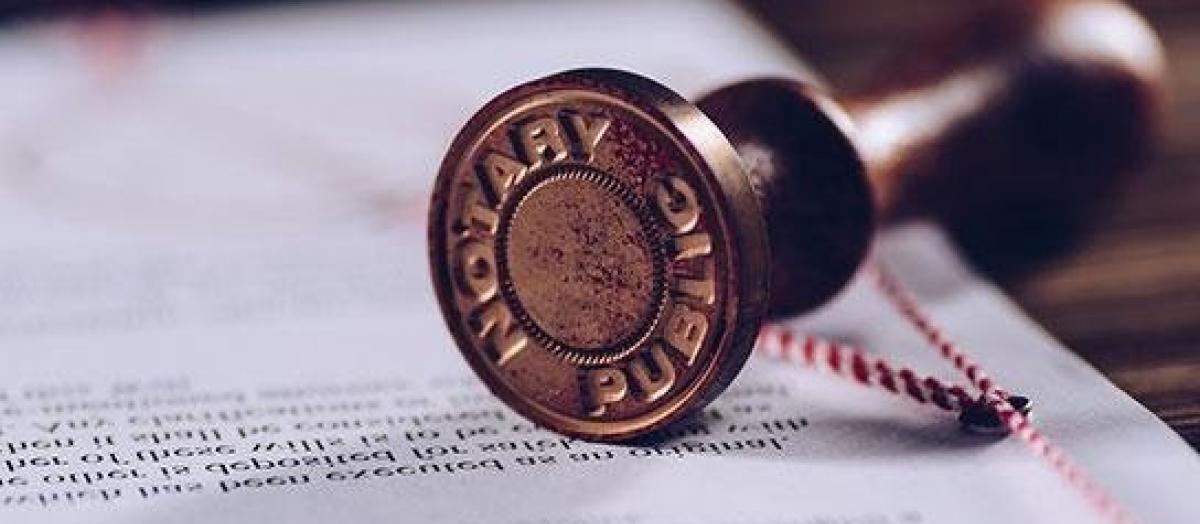Taking Care Of Deceased Estate Issues: Support With Legal Procedures
Wiki Article
Demystifying Notarial Work: Simplifying the Function and Value of Notaries
In the intricate internet of legal paperwork and confirmation, notaries stand as pillars of assurance and credibility. Their function, often shrouded in secret for many, carries considerable weight in guaranteeing the validity and honesty of important documents. As guardians of legality and truth, notaries play a critical component in our culture, yet their work is not always totally recognized. By unwinding the intricacies shedding and bordering notarial methods light on the importance of their acts, a more clear understanding emerges of the essential role notaries play in upholding the textile of lawful and legal contracts.The Background of Notarial Work
The history of notarial job dates back to old civilizations, where scribes played a vital function in recording crucial information and authenticating files. This led to the development of notaries, people selected by the state to act as neutral witnesses in lawful matters.
Throughout the Middle Ages, notaries obtained prestige in Europe, with their functions expanding to include composing lawful papers, licensing signatures, and protecting documents. The rise of worldwide profession even more highlighted the importance of notarial operate in validating contracts and contracts throughout boundaries.
In the modern age, notaries proceed to play a vital function in lawful and company deals by validating identifications, confirming the credibility of records, and avoiding fraudulence. Their role in certifying the validity of contracts adds a layer of safety and depend the ever-evolving landscape of commerce and law.

Duties and Duties of Notaries
The historical evolution of notarial work from old worlds to the modern period has actually formed the distinctive tasks and obligations that notaries support in legal and company transactions today. Notaries play a vital role in verifying the credibility of papers and the identification of notaries. One of their key duties is to witness the finalizing of crucial papers, such as wills, contracts, and deeds, to make certain that all events are becoming part of arrangements intentionally and voluntarily. Notaries also confirm that signatures are of sound mind and not under pressure or coercion.In addition, notaries are tasked with providing affirmations and oaths, which are essential in legal procedures and the execution of affidavits. They accredit copies of original documents, supplying guarantee to organizations that the copies are real reproductions of the originals. Notaries have to preserve precise records of all deals they supervise to make certain openness and responsibility. Generally, the responsibilities and responsibilities of notaries are vital in guarding the stability and legitimacy of various documents and transactions.
Notarial Certificates and Signatures
Exhibiting careful attention to detail, notarial certificates and trademarks act as necessary components in verifying the credibility of legal papers. Notarial certifications usually include crucial information such as the date of notarization, the names of the signatories, a summary of the paper, and the notary's official seal. These certificates provide a clear record of the notarial act, making sure that the paper can be quickly recognized and mapped back to the notary who managed the procedure.Trademarks play a critical duty in notarial job, as they signify the contract and authorization of the events entailed. Notaries carefully witness the finalizing of papers to validate the identification of the notaries and confirm that they are authorizing of their very own free choice. By attaching their main seal and signature to the record, notaries accredit that the required treatments have been adhered to which the file is valid and enforceable.
Essentially, notarial Home Page certifications and signatures are the hallmark of authenticity in legal deals, supplying guarantee to all parties entailed that the documents are legit and binding.
Significance of Notarial Acts

Registration Refine Described
The notarization procedure normally starts with the private presenting the record to a notary public. Once the identification is verified, the notary ensures that the individual authorizing the file does so willingly and without any type of coercion.
Verdict

Notarial certificates generally include important information such as the date of notarization, the names of the signatures, a description of the document, and the notary's official seal. These certifications offer a clear record of the notarial act, guaranteeing that the file can be conveniently identified and mapped back to the notary that managed the procedure.
By fastening their official seal and signature to the record, notaries accredit that the essential procedures have actually been complied with and that the record is enforceable and valid.
By confirming the identification of the notaries, confirming their readiness to get in right into the agreement, and licensing the day and location of the signing, notaries play a vital role in maintaining the credibility of legal records.After the paper is signed, the notary will affix their main seal or stamp onto the file.
Report this wiki page